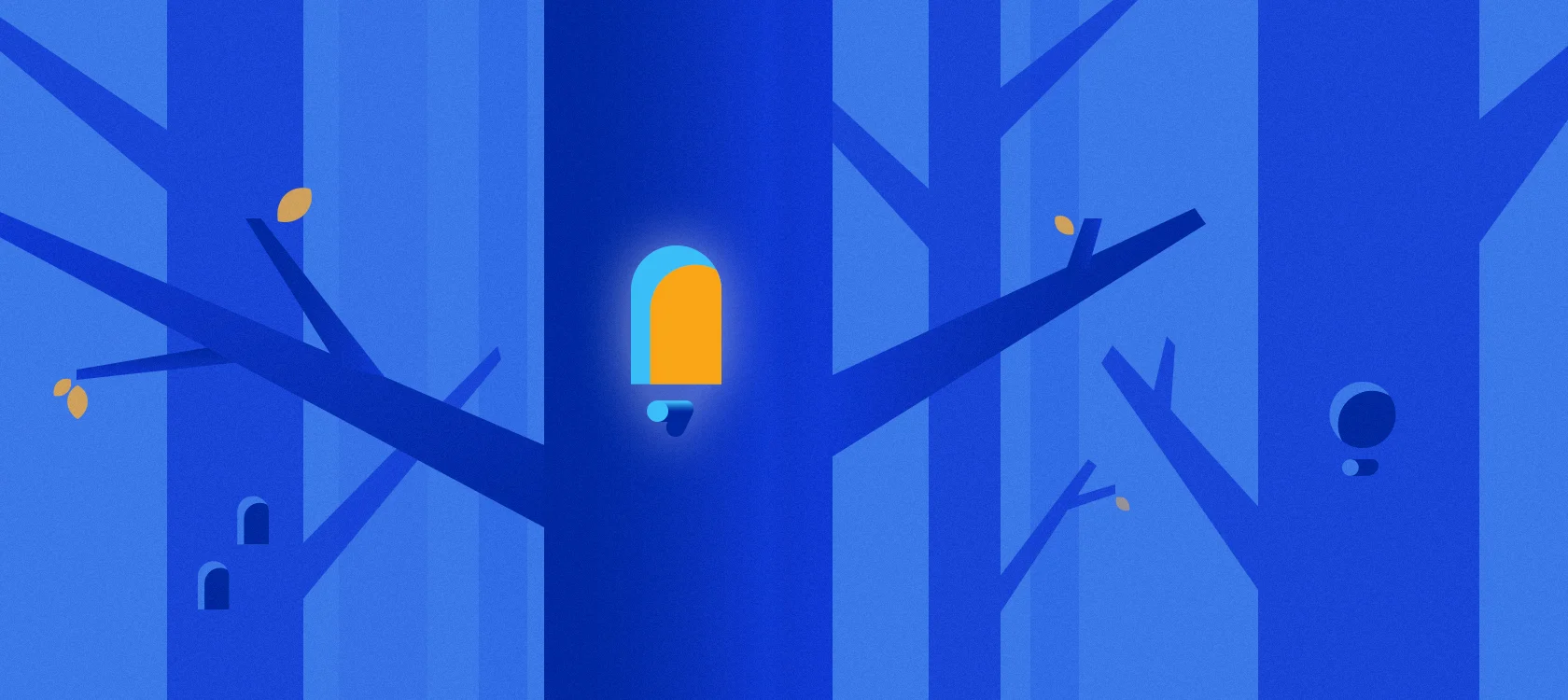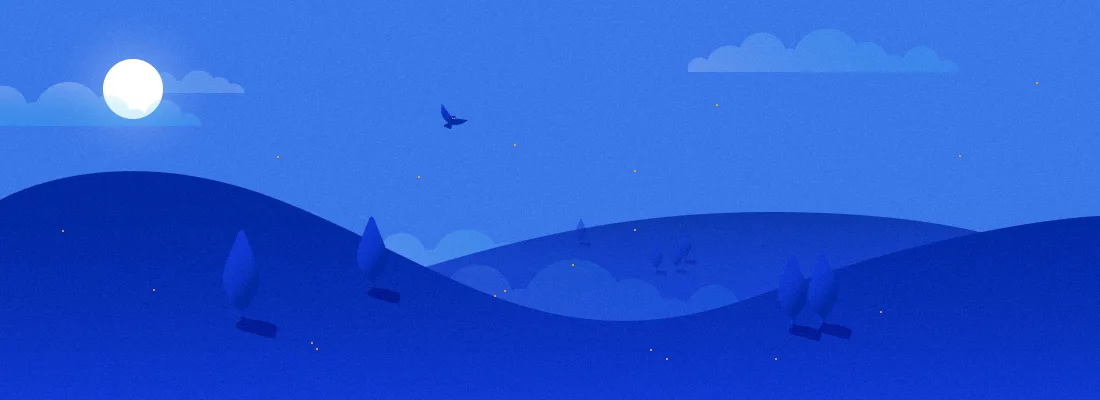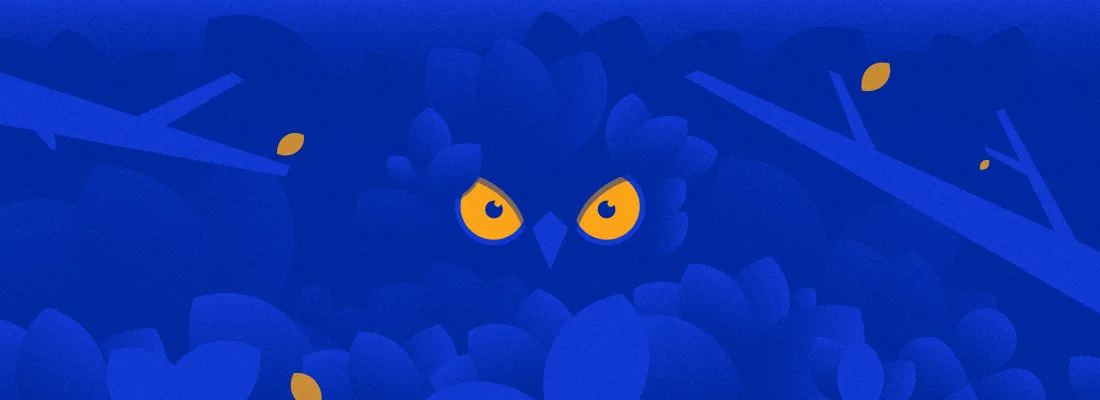In Defense of Night Owls
- 3 August 2017
- ByJillian Conner
- 6 min read

Have you ever woken up to the feeling of immediate, self-inflicted shame just from looking at the time on your bedside clock?
Your sleepy eyes dart around the room, in search of reassuring thoughts to counter the visions of early-risers already on their second cup of caffeine, happily sending off their last email for the day. You grimace at the remembrance of over-written articles by so-called experts on the benefits of waking early paired with the negative images of waking late. The stigma is perpetuated by countless Medium articles on the benefits of “re-wiring” your circadian clock, citing improvements in productivity, happiness, and health, all to sell you on, presumably, the “hustle.” In these arguments lies an inherent disapproval of late-sleepers.
A 2015 study found that people “who favored a later bedtime reported an increase in repetitive negative thinking.” And a slew of people surveyed in 2012 found that the early-risers felt happier and healthier than the late-risers. Although this seems to be a shut-and-closed case of earlier is better, that same 2012 study added that even though the happiest respondents were morning people, “Part of the reason, researchers hypothesized, is that our society has structured the workday as a common 8-5 time period, which focuses more on a morning-person’s schedule.”

Christoph Randler, a biology professor in Heidelberg, Germany, said that evening folk tend to be more creative, smarter, outgoing, and have a better sense of humor than morning people. He speculates that this could, in fact, be because they are “out of sync with the typical corporate schedule.” But what we’re really talking about here is the status quo - the arbitrary daily schedule for much of the working world. How did we get to Monday through Friday, nine-to-five as the standard?
Thanks to worker protection laws and unions, combined with economic adjustments after World War II, normal work weeks steadily dropped from an average of sixty hours to a mandated forty-hour work week in 1946. And thus the term “9-to-5” was born. Though the U.S. is slowly but surely creeping towards a culture of flexible hours, telecommuting, and maybe even fewer hours, we’ve been stuck in this forty hour week tradition for decades now. And because of this and its apparent effectiveness, it’s easy to see why businesses are unwilling to adjust their hours for each individual worker. The inefficiency of those logistics alone - keeping offices open late into the night, or open before the sun comes up - are enough to make a CEO scoff at the mere idea of acknowledging her employee’s sleep habits.
Yet research actually shows that night owls have different circadian rhythms. Their melatonin levels peak later in the day, meaning they can stay awake longer than early birds, but wake later in the day by nature. Though there are some people who can operate fine on very little shut-eye, chances are that you and the chipper morning person you share a desk with are getting the same amounts of sleep. The only difference between you two is that your supervisor may perceive your chipper co-worker to be smarter and more creative, simply because that person gets more done by noon than you do. But they should think twice.
Former President Barack Obama is a self-proclaimed night owl, according to the . During his eight year presidency, Obama’s staff became accustomed to being woken at 1 a.m. to the sound of their phone receiving an email from him. Sometimes he’d ask them to return to the White House in the late evening to help him complete a particularly challenging speech. As a treat, he would eat exactly seven almonds every evening before diving into the pages of his briefings. Then he was in for a late night of work: “I’ll probably read briefing papers or do paperwork or write stuff until about 11:30 p.m., and then I usually have about a half-hour to read before I go to bed, about midnight, 12:30 a.m., sometimes a little later.”

Those beautiful shots of hot lemon water and a pristine MacBook, posted at 6:00 a.m., with the caption “Up and at ‘em!” that litter your Instagram feed are not disrupting the status quo as they so generously preach. They are, in fact, perpetuating the beliefs that rising early equals success and that no good work gets done at night. This system of rigid scheduling benefits only those who created it and other people like them, leaving the rest of us in a perpetual social jet lag.
Since when has a population following the exact same principles ever resulted in a healthy culture and diverse set of perspectives? If night owls forced themselves to sleep and wake earlier, squelching their creativity in the process, then what’s the point? They’re the warriors of individuality and creativity we so desperately need.
So here is your permission, night owls, to nurture your circadian clock and continue churning out that great work only you can make late into the night. We need you.
3 August 2017
Words by:Jillian Conner
Tags
- Share